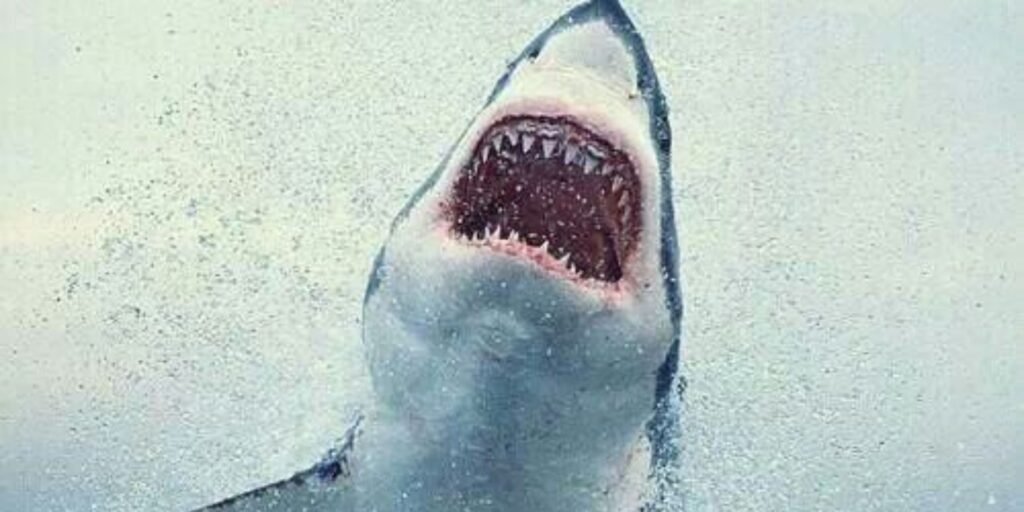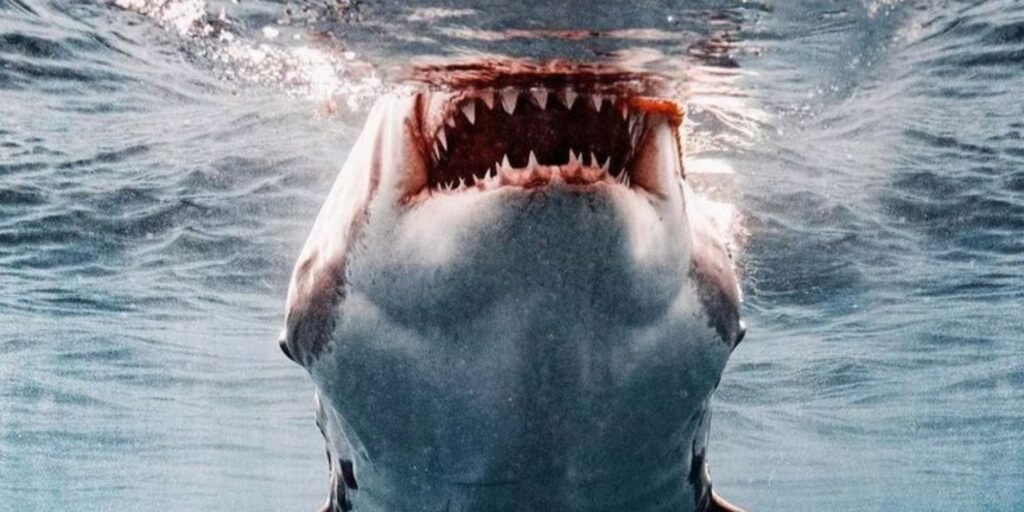Great white sharks (Carcharodon carcharias) are among the most fascinating and fearsome predators of the ocean. Great white sharks are known for their powerful builds, sharp teeth, and hunting skills. These apex predators have fascinated scientists and marine enthusiasts for years. One common question is: Do great white sharks sleep? The answer is not simple. Unlike humans and many animals, great white sharks do not sleep in the traditional sense. In this article, we will explore their unique resting patterns, how they rest while staying active, and why their sleeping habits differ from those of other creatures.
Understanding Sleep in Marine Animals
Before delving into the specific behaviour of great white sharks, it’s essential to understand how sleep works in marine animals. Unlike terrestrial mammals, many aquatic creatures, including sharks, do not have the luxury of a continuous rest period. The need to breathe, maintain buoyancy, and move through water requires them to be continuously active to some degree.
In most mammals, sleep is defined by the cessation of activity and a decrease in responsiveness to external stimuli. However, marine animals like sharks have evolved different strategies to rest while still meeting their physiological needs. Some species, such as dolphins, can rest one hemisphere of their brain at a time, remaining semi-alert while the other hemisphere sleeps. Sharks, however, do not exhibit this form of sleep. Instead, they rest in short bursts, allowing them to maintain their essential activities such as breathing and hunting.
Do Great White Sharks Sleep?

Great white sharks, like other sharks, need to stay active in order to breathe. Most shark species rely on a method of respiration called ram ventilation, where water flows through their gills as they swim. By swimming constantly, they force water over their gills, which is essential for oxygen exchange. This makes it impossible for them to completely “sleep” like mammals do, as they would suffocate without the continuous flow of water.
However, this does not mean that great white sharks are always in motion. Sharks are known to take breaks and rest while still maintaining some level of activity. Researchers have found that great white sharks can enter periods of reduced activity, often referred to as “resting” or “sleeping,” during which their body and brain enter a state of low-energy use. These periods typically involve slower swimming speeds and a decrease in overall muscle activity.
How Do Great White Sharks Rest?
While great white sharks don’t sleep in the traditional sense, they do engage in rest periods that help them recover from the demands of hunting and swimming. During these periods, their activity levels decrease significantly, but they do not stop swimming altogether. Instead, they slow down and engage in a form of “resting swimming.” This allows them to continue moving forward while maintaining water flow over their gills.
Interestingly, great white sharks have been observed to exhibit different resting behaviours in various environments. In coastal areas or around the continental shelf, where the waters are shallow, and currents are less intense, great white sharks have been seen swimming in slow, steady circles or remaining motionless in the water column for short periods. In deeper waters, sharks might engage in more active swimming, even when resting, as the water pressure and current force them to keep moving.
The Importance of Rest for Great White Sharks
Like any other animal, great white sharks need rest in order to maintain their health and energy levels. Even though they don’t sleep in the same way humans do, their rest periods allow their muscles to recover and their bodies to conserve energy. These periods of reduced activity are crucial for their long-term survival, as hunting and swimming at high speeds require significant energy.
Moreover, sharks’ rest periods help regulate their internal systems. By reducing activity, their metabolic rates decrease, conserving oxygen and preventing the exhaustion of their energy reserves. This is especially important for large predators like great white sharks, which often hunt and travel over long distances. A well-timed rest allows them to recharge and continue their demanding activities.
How to Do Great White Sharks Hunt and Rest Simultaneously?
One of the most interesting aspects of great white sharks’ behaviour is how they manage to hunt while still resting. These animals are opportunistic hunters, which means that they often do not need to hunt continuously. Instead, they rely on their ability to make sudden, powerful bursts of speed when they detect prey. This allows them to conserve energy by resting during less active periods and then using short, intense bursts of energy to catch their food.
Additionally, great white sharks have evolved a remarkable hunting strategy that complements their ability to rest. They often stalk their prey by swimming slowly and stealthily, conserving energy while they wait for the perfect moment to strike. When they spot a seal or other prey, they use a rapid burst of speed to close the gap, attacking with impressive force. This hunting method, coupled with their ability to rest between hunts, allows great white sharks to conserve energy while maintaining a high level of efficiency.
How Much Rest Do Great White Sharks Need?
While there is no clear consensus on how much rest great white sharks require, studies suggest that they spend a significant amount of time in periods of reduced activity. These periods of rest help to ensure that the sharks are able to perform their complex hunting behaviours, which can require bursts of intense energy.
However, it’s important to note that the amount of rest a great white shark needs may vary depending on several factors, such as the availability of food, environmental conditions, and the shark’s overall health. In areas with abundant prey, sharks may rest more often, as they do not need to expend as much energy on hunting. Conversely, in areas where prey is scarce, sharks may remain more active, searching for food over longer distances.
The Evolutionary Adaptations of Great White Sharks

The unique resting behaviour of great white sharks is a result of millions of years of evolutionary adaptation. These sharks have evolved to be highly efficient predators, capable of hunting and resting in a way that supports their survival in the harsh ocean environment. Their ability to maintain a balance between activity and rest allows them to thrive in diverse ocean habitats.
One key adaptation that helps great white sharks survive is their streamlined body, which reduces drag and allows efficient swimming. Their large liver also serves as an energy reserve, helping them maintain activity levels even when prey is scarce. These traits, along with their ability to rest while still moving, make great white sharks among the ocean’s most successful and resilient predators.
Why Understanding Shark Resting Behaviors Is Important
Understanding the resting behaviours of great white sharks is essential for several reasons, particularly in the context of conservation. As apex predators, sharks play a crucial role in maintaining the health of marine ecosystems. Their hunting activities regulate populations of other marine species, preventing overpopulation and promoting biodiversity.
By understanding how sharks rest and how their behaviour impacts their survival, we can better protect them from threats such as overfishing, habitat loss, and climate change. This knowledge is also essential for managing human-shark interactions, particularly in areas where sharks and humans coexist.
Conclusion

In conclusion, great white sharks do not “sleep” in the traditional sense. Instead, they rest by reducing their activity levels while continuing to swim and breathe. This unique resting behaviour allows them to conserve energy while maintaining their status as apex predators. By understanding how great white sharks rest and hunt, we gain valuable insights into their lives and challenges. Continued research and conservation efforts will help ensure these remarkable animals thrive in the ocean for generations to come.

